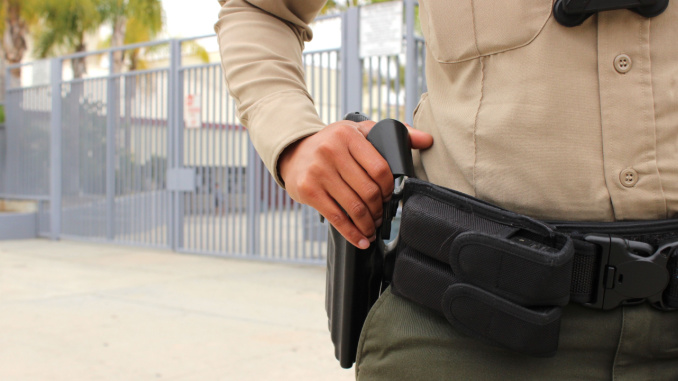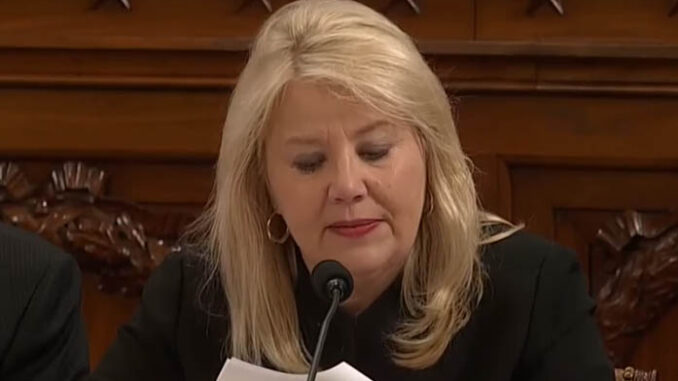
by Staff Reporter | Dec 13, 2024 | Economy, News
By Staff Reporter |
The city of Phoenix is one of the cities with the most debt in the country, according to a new study.
Per a study from LendingTree, Phoenix ranks 18th among the 50 largest metropolitan cities for debts held. The average Phoenix resident has a debt surpassing $39,000. That’s higher than the average nonmortgage debt across all 50 of the country’s largest metropolitan cities (about $37,800).
The average Phoenix resident’s income amounts to $79,600 according to Census Bureau data, above the median household income for the rest of the country (over $75,100). The average Phoenix resident debt amount is nearly half of the city’s median income.
LendingTree retrieved its data using anonymized credit reports from around 210,000 users on their platform from April through June of this year across the 50 largest cities. Nonmortgage debt includes auto loans, student loans, credit cards, personal loans, and all other types of debt excluding mortgages.
Nearly 97 percent of consumers in Phoenix have nonmortage loan debts, per the study. That tracks with the debt averages for rest of the 50 most populated metros: on average, 97 percent of residents across all those cities have nonmortage debt.
45 percent of Phoenix residents also have auto loan debt, 85 percent have credit card debt, 24 percent have personal loan debt, and 24 percent have student loan debt.
Phoenix ranked even higher with its average auto loan debt, placing eleventh with the average auto loan debt sitting at nearly $14,000. That’s higher than the average auto loan debt for the state, which amounts to around $6,000. Auto loan debts accounted for the greatest portion of average debts held by Phoenix residents, which is also the case for 26 of the other 50 major metros included in the study.
Average credit card debt in Phoenix amounted to just over $8,200, average personal loan debt amounted to about $4,200, and average student loan debt amounted to over $10,300.
The average Phoenix resident’s credit card debt came out higher than the state’s: the average for all of Arizona amounts to over $6,300.
At the end of last year, Arizona ranked among the top ten states for the highest average unsecured personal loan debts: around $12,300. Arizona also ranked among the top 20 for highest average household debt increases from last year to this year: an increase of over $700, making total household debt in the state amount to over $429.6 billion.
The city’s student loan debt is lower than that of the state. As a whole, the state has an average student loan debt of nearly $35,700, with about 902,600 borrowers living in the state.
Phoenix was the only metro city from Arizona listed on the top-50 ranking by LendingTree.
The top three cities for debts held were all in Texas: Austin, San Antonio, and Houston, in order of highest to lowest.
The three cities with the lowest amounts of debt, in order from least to greatest, were: San Jose, California; Louisville, Kentucky; and Milwaukee, Wisconsin.
AZ Free News is your #1 source for Arizona news and politics. You can send us news tips using this link.

by Staff Reporter | Dec 11, 2024 | Education, News
By Staff Reporter |
The Maricopa Superior Court dismissed a challenge to a school district’s dual language program, citing lack of standing.
The plaintiff, Patricia Pellett, is a Scottsdale Unified School District parent, and not part of the district she challenged, Creighton Elementary School District (CESD). Arizona Department of Education (ADE) Superintendent Tom Horne’s wife, Carmen Chenal Horne, represented Pellett in the case.
Back in August, Horne said that it was irrelevant that Pellett didn’t have a child in CESD schools.
“Under a provision in the initiative that said that a student of any parent in the state could bring an action against any school district in the state that violates this initiative,” said Horne.
The challenge to CESD arose from Horne’s crusade against dual language programs. Horne’s aim is to have all schools teach only through immersion programs. Dual language models teach students subjects in languages other than English for part of their education, whereas immersion has students taught their subject matter entirely in English.
State law enacted through a voter initiative (Proposition 203 passed in 2000) requires that public schools teach the English language through English-spoken courses and English language classrooms, unless parents are eligible to provide prior written informed consent for bilingual education techniques or those educational methodologies permitted by law.
“[A]ll children in Arizona public schools shall be taught English by being taught in English and all children shall be placed in English language classrooms,” states the law.
Eligible circumstances include parents with children who already know English, older children, and children with special needs.
The Arizona State Board of Education has determined that parental waivers for immersion aren’t required, a finding affirmed by Attorney General Kris Mayes last year. Mayes published that opinion in response to a request on legal clarity from state representatives as to whether the language models used by seven school districts — Glendale Elementary, Kyrene Elementary, Phoenix Elementary, Mesa Public Schools, Laveen Elementary, Creighton Elementary, and Mexicayotl Academy — warranted corrective action by ADE.
Horne dismissed Mayes’ opinion as “ideologically driven” and not based in law.
Horne turned to Pellett to challenge schools’ dual language programs after Maricopa County Superior Court ordered Horne to pay over $120,000 in legal fees earlier this year.
The judge, Katherine Cooper, ruled that state law didn’t authorize Horne to ask the courts to rule on school district compliance with Proposition 203. Cooper ruled that only the State Board of Education possessed authority over dual language programs, citing the board’s responsibility for developing and approving immersion models. Cooper further declared that Horne had no justiciable claim, either, and ruled that parents and guardians had the power to file lawsuits to enforce the proposition.
“The school districts, like all public and charter schools, are required to follow a model as approved by the State Board,” ruled Cooper.
Horne’s response was to accuse the ruling as avoidant of the merits of the case. He reiterated that the voter-approved initiative (Proposition 203) required children to be taught in English.
With Horne’s continued challenges to the existence of dual language programs and advocacy for immersion programs, the Arizona School Boards Association says it will advocate for greater reliance on 50-50 models.
AZ Free News is your #1 source for Arizona news and politics. You can send us news tips using this link.

by Staff Reporter | Dec 11, 2024 | News
By Staff Reporter |
Maricopa County Republicans no longer wish to challenge the voter-approved transportation sales tax.
The Maricopa County Republican Committee (MCRC) filed a motion to dismiss their lawsuit against Proposition 479 on Sunday.
The attorney for MCRC’s lawsuit, Bryan Blehm, filed the motion to dismiss on behalf of plaintiffs Craig Berland (chairman) and Shelby Busch (first vice-chairman).
Proposition 479 was styled as a continuation of a half-cent sales tax first established in 1985 and last renewed in 2004. The tax revenue funds Maricopa County infrastructure and will last until 2045.
Just short of 60 percent of voters passed Proposition 479. Polling months ahead of the election indicated this to be the case. The proposition came out of a Senate bill advanced by Republican leadership in both legislative chambers, SB 1102, which Senate President Warren Petersen hailed as “the most conservative transportation plan” in Arizona history.
Not all Republican leaders agreed. Arizona Freedom Caucus members expressed opposition to the Senate bill, as did the “conservative watchdog groups” they referenced.
“[This proposition is] a massive win for Hobbs and the Democrats,” said caucus member State Representative Justin Heap.
The Arizona Free Enterprise Club and Goldwater Institute also opposed Prop 479. The two entities claimed in remarks of opposition submitted to the county that the proposition would mostly fund transit.
Per the Maricopa Association of Governments (MAG), 40 percent of the sales tax revenues is slated for the construction of freeways and highways, 22 percent for arterial roads and regional transportation infrastructure, and 37 percent for transit.
Democratic leadership at all levels stood in support of the proposition’s passage and opposition to the MCRC lawsuit, from Governor Katie Hobbs to Phoenix Mayor Kate Gallego.
MAG Regional Council also joined the county to argue for dismissal of the lawsuit. Kevin Hartke, MAG chairman and Chandler mayor, said in a statement to InMaricopa that the lawsuit went against the majority of voters and their desire for transportation funding.
“We won’t let a flawed claim stand in the way of our 40-year legacy of building one of the best transportation systems in the country,” said Hartke. “The transportation plan unanimously approved by the region’s elected leadership, sent to the ballot by the Maricopa County Board of Supervisors and overwhelmingly approved by the voters of Maricopa County, is critical to the quality of life of our residents and the continued strength of our local economy.”
MAG predicts the tax will generate up to $15 billion in revenue (using 2020 dollars) and slash commute length to an average of 30 minutes through 2050, even with an estimated influx of 1.7 million residents and 900,000 jobs.
MAG Executive Director Ed Zuercher indicated that county officials weren’t going to cease moving forward with their transportation plan, even if the lawsuit had progressed.
“The regional transportation plan that was unanimously approved by MAG’s mayors, tribal and county leaders, and supported by business leaders and the voters, will be implemented on schedule,” said Zuercher.
In reporting from last week, Arizona’s general contractors also sided with the efforts to protect the sales tax. The Arizona Chapter of Associated General Contractors of America had criticized MCRC’s lawsuit as “frivolous” and based on political contentions advanced by “disgruntled partisans.”
AZ Free News is your #1 source for Arizona news and politics. You can send us news tips using this link.

by Staff Reporter | Dec 10, 2024 | Education, News
By Staff Reporter |
None of Arizona’s schools have fully implemented and tested their emergency plans, nor did they fully meet the state’s minimum standards.
The Arizona Auditor General published a new report on Monday finding that no schools throughout the state met Emergency Operations Plan (EOP) Minimum Standards. Those standards were developed jointly by the Arizona Departments of Education (ADE) and Emergency and Military Affairs (DEMA). The auditor general determined that some of the standards were “too vague, may be impractical, or lack a clear purpose,” therefore hindering adequate adherence.
In its report, the auditor general found that most schools had fewer than half of EOP Minimum Standards, and some charter schools didn’t have any EOPs.
“Most schools we visited had not provided emergency procedures training to all staff, including substitute teachers; had not conducted all required safety drills; and had not posted certain safety reference materials, which could affect their preparedness to respond to emergencies,” read the auditor general’s report summary.
The auditor general determined that all schools needed increased outreach, guidance, and training on emergency planning.
Schools don’t have the entire burden of change on them, however. The auditor general also determined that ADE and DEMA had greater responsibilities ahead of them to ensure improved EOP Minimum Standards compliance: ensuring charters know their responsibilities to develop EOPs, analyzing staffing and resources needed to initiate compliance monitoring processes, communicating the monitoring plan and authority resource needs to the governor and legislature, evaluating what additional guidance is needed for school compliance and providing necessary assistance, and completing a comprehensive standards review with stakeholder involvement and working with stakeholders to clarify emergency response agencies’ roles in EOP development.
While ADE agreed to the changes recommended by the auditor general, DEMA did not.
In its response, DEMA said it didn’t have the opportunity to review the entire unredacted auditor general’s report, nor did it have an opportunity to review any of the EOPs the auditor general reviewed to reach its conclusion. The auditor general issued a response clarifying that the confidential draft report provided to DEMA only redacted those references concerning other entities unrelated to DEMA and its responsibilities, and that three other entities were given similarly-redacted reports.
DEMA further asserted that state law didn’t authorize its agency to develop EOPs for every district or charter; rather, DEMA said that the State Board of Education and ADE bore statutory responsibility for supervising and regulating public school conduct.
“Industry practice is to develop generalized planning standards which set a minimum threshold that allow each school district the flexibility to tailor their EOP to their unique circumstances or particular needs,” said DEMA. “As the primary agency responsible for enforcing standards with school districts, DEMA contends that it is ADE’s responsibility to inform districts of statutory requirements to adopt EOPs meeting the minimum standards. DEMA understands that ADE has full-time school safety and preparedness planners that can support this purpose and has an opportunity to communicate any additional resource needs to further effect this recommendation through their Audit response process.”
The auditor general’s response also addressed these refusals from DEMA, noting that it hadn’t required DEMA to develop school EOPs but rather evaluate whether additional outreach, guidance, and training would help schools better plan for safety emergencies.
The Arizona State Board for Charter Schools also refused some of the auditor general’s recommendations. The charter board said that it agreed with the auditor general and the state on the importance of EOPs, but that it lacks the “resources or subject matter expertise” for monitoring and enforcing compliance with minimum EOP standards.
“The Charter Board believes it is appropriate for a state-centralized review process to be established to monitor whether EOPs meet the required minimum standards. This process would ensure that both charter and district schools are held to the same standards of review and oversight,” said the board. “Furthermore, it would assign the responsibility of evaluating whether EOPs substantively meet the Minimum Standards to the appropriate agency—one with the necessary resources and expertise to effectively monitor compliance.”
AZ Free News is your #1 source for Arizona news and politics. You can send us news tips using this link.

by Staff Reporter | Dec 8, 2024 | News
By Staff Reporter |
A recent decision by the Environmental Protection Agency (EPA) concerning Maricopa County may have been politically motivated and may pose a national security risk.
The EPA decided earlier this week to reclassify Maricopa County to “serious” nonattainment status for its ozone National Ambient Air Quality Standards (NAAQS). Congresswoman Debbie Lesko claimed that the EPA’s reclassification poses a national security risk in a Wednesday press release. The congresswoman argued that finalization of the reclassification ahead of a second Trump administration would jeopardize Arizona’s newly established semiconductor manufacturing.
“If the EPA continues its expedited schedule in a rush to make their reclassification effective before the Trump Administration takes office, it will negatively impact Arizona and national security,” said Lesko. “The Taiwan Semiconductor Manufacturing Company (TSMC) was just awarded $6.6 Billion in CHIPS Act funding. This action by the EPA could jeopardize that funding and makes absolutely no sense.”
Lesko speculated in letters of appeal to the EPA and Commerce Department that the EPA was acting in a rushed response to undermine president-elect Donald Trump’s incoming administration.
“The reason for this [EPA] change is not clear to me, but I am concerned that this action was taken based upon the political reality of the upcoming administration change,” said Lesko.
Lesko further argued the EPA was “premature” in its reclassification. Lesko referenced an understanding via communications with the EPA that the agency wouldn’t issue its decision until next May.
Not only has the EPA acted prematurely, Lesko argued, but their expedited timeline works outside of the legal requirement to have a 180-day window for redesignation from Aug. 3, 2024, which would land on Jan. 30, 2025. The presidential inauguration takes place on Jan. 20, 2025. Lesko asked the EPA to honor its original May timeline.
EPA Region 9 advised Maricopa County Air Quality that they would issue a Federal Register Notice containing an “expedited redesignation” within the coming weeks.
The redesignation would lower Maricopa County’s emissions threshold from 100 tons to 50 tons for major sources of nitrogen oxides and volatile organic compounds. Lesko said these adjustments would jeopardize TSMC operations.
“TMSC’s new plant requires an air quality permit to proceed. The current major source threshold of 100 tons would allow TSMC to proceed without needing to acquire emission reduction credits (ERCs),” said Lesko. “However, a redesignation to serious nonattainment would impose the 50-ton threshold, which is currently unfeasible due to the shortage of available ERCs, thus potentially delaying or halting this key project.”
Lesko cited further concerns that the expedited redesignation would harm the Maricopa County and Arizona economies by dissuading industry growth and recruitment for technology and advanced manufacturing.
Maricopa County Air Quality issued a release earlier this year warning that the EPA would reclassify their ozone nonattainment from “moderate” to “serious” nonattainment prior to Feb. 3, 2025.
The EPA included Maricopa County in its final rule, finding it in October as an area that failed to submit a plan addressing EPA ozone requirements for moderate nonattainment areas. The EPA reclassified Maricopa County from marginal to moderate in 2022, and gave the county until last January to submit its plan.
AZ Free News is your #1 source for Arizona news and politics. You can send us news tips using this link.





